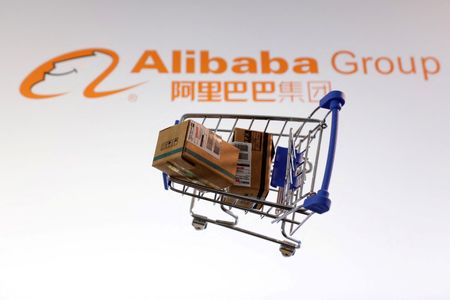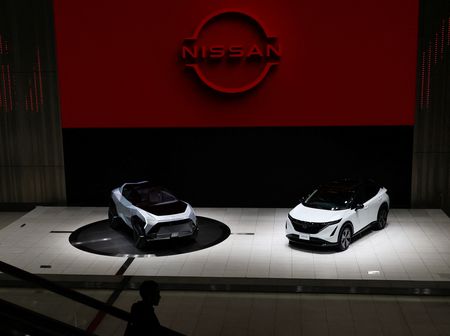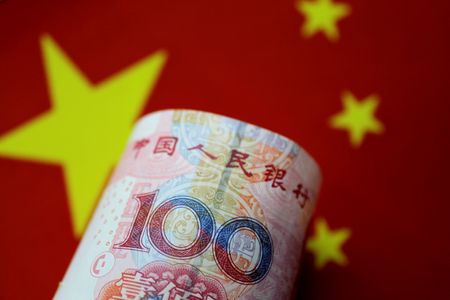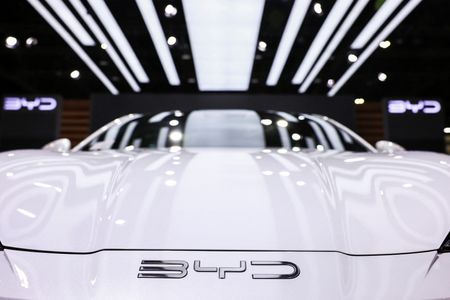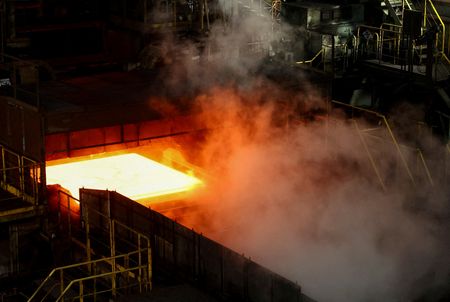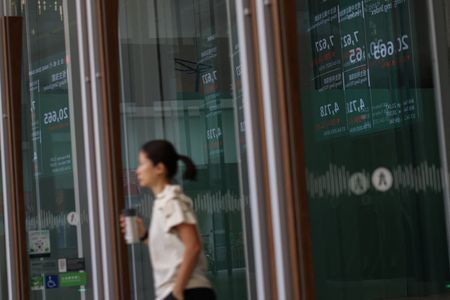By Harshita Mary Varghese and Casey Hall
(Reuters) – Alibaba’s shares opened 10% higher in Hong Kong on Friday to reach their highest level in more than three years, after it reported third-quarter revenues just above analysts’ estimates and said it plans to invest more in e-commerce and AI.
The Chinese e-commerce giant’s U.S-listed shares jumped 8% in their biggest one-day percentage gain since September last year following its earnings on Thursday, closing at their highest level in more than three years at US$135.97.
“Alibaba delivered an inflection point quarter as the company’s cloud business was much stronger than the Street and the Chinese stalwart’s AI strategy is heading into its next gear of growth,” Wedbush Securities analyst Daniel Ives said.
The Wall Street Journal also reported on Thursday that billionaire investor Ryan Cohen has increased his personal stake in Alibaba to roughly $1 billion in recent months.
“We do not believe Cohen is alone in his bets on Alibaba as it’s becoming clearer this could be one of the winners in the China AI Arms Race,” Ives said.
Alibaba CEO Eddie Wu, speaking to analysts, said AI was “the kind of opportunity for industry transformation that only comes around only once every few decades.” He said Alibaba would invest more in AI and cloud computing over the next three years than it had in the past decade but did not put an exact figure on the investment amount.
The company’s revenue was 280.15 billion yuan ($38.58 billion) for the three months ended December 31, compared with 279.34 billion yuan expected by 17 analysts polled by LSEG.
Chinese retailers such as Alibaba have cut prices and intensified promotional offers to revitalise consumer spending and drive sales at their core domestic e-commerce businesses.
Healthy demand from international markets and increased spending by customers towards the year-end helped the company boost sales.
Alibaba’s domestic e-commerce business Taobao and Tmall Group produced revenue growth of 5% for the quarter and company executives said the division would continue to focus on market share stabilisation in the near future.
‘AI JUGGERNAUT’
Alibaba has kicked off 2025 as a winner in China’s AI race, drawing in investors with strategic business deals. Its share price has risen more than 60% since the beginning of the year.
“When it comes to Alibaba’s AI strategy … we aim to continue to develop models that extend the boundaries of intelligence,” Wu said, adding that AI could eventually “have significant influence on or even replace 50% of global GDP”.
The inclusion of Alibaba co-founder Jack Ma in a meeting of private enterprise leaders chaired by China’s President Xi Jinping this month, and photos of Ma shaking hands with Xi, has further raised investor confidence in Alibaba.
“Alibaba has bagged a seat on the AI juggernaut and is now reaping rewards,” said Susannah Streeter, head of money and markets at Hargreaves Lansdown.
Alibaba said it is teaming up with Apple to power iPhones sold in China with its AI solutions, solidifying its foothold in a market where homegrown rival DeepSeek is making waves with cost-effective models.
Alibaba unveiled an upgraded version of its Qwen 2.5 AI model in late January, saying it outperforms DeepSeek-V3.
Alibaba’s Cloud Intelligence Unit’s revenue grew 13%.
The company’s international e-commerce business, which includes cross-border player AliExpress, wholesale B2B site Alibaba.com and other regional platforms, remained one of its fastest growing, with 32% revenue growth in the quarter.
Alibaba last November announced the integration of its domestic Chinese and international e-commerce platforms into a single business unit, the Alibaba E-commerce Business Group, bringing together the Taobao and Tmall Group and the Alibaba International Digital Commerce Group.
($1 = 7.2613 Chinese yuan renminbi)
(Reporting by Harshita Mary Varghese in Bengaluru and Casey Hall in Shanghai; Editing by Arun Koyyur, Jane Merriman and Jamie Freed)

